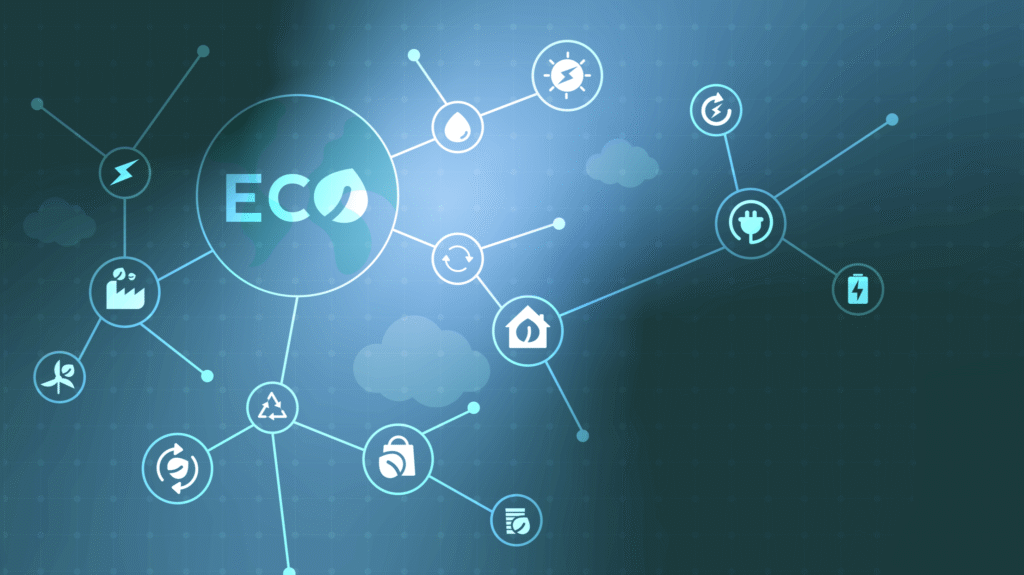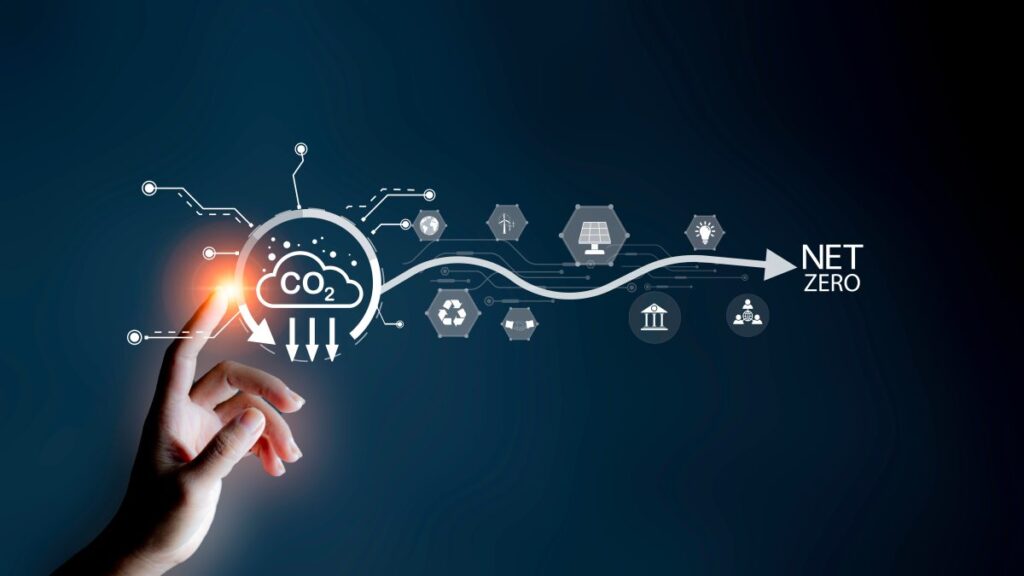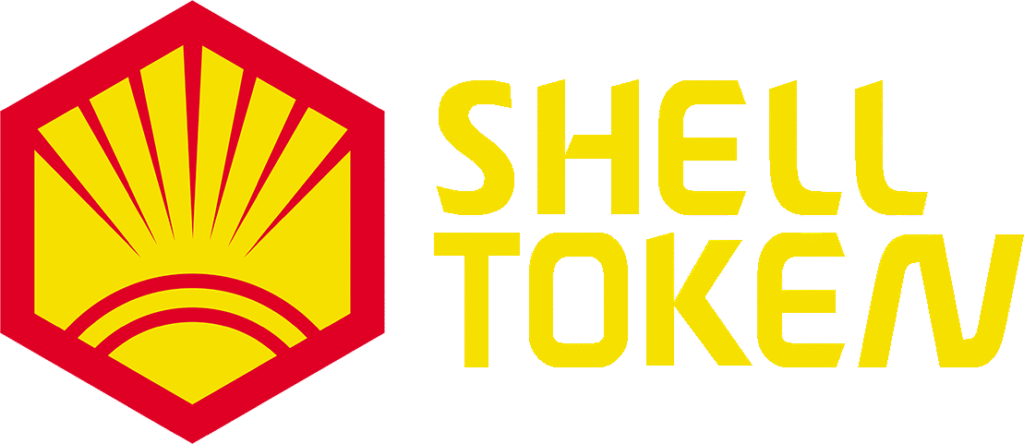The world of cryptocurrency is rapidly evolving, and with it, new paradigms for how traditional industries can integrate blockchain technology are emerging. One such ambitious initiative is Shell Token, a community-driven cryptocurrency seeking to bridge the gap between global energy markets and decentralized finance. This article delves into the intricacies of Shell Token’s economic model, exploring its strategies for ensuring long-term sustainability and fostering growth within a decentralized ecosystem.
The Vision Behind Shell Token: A New Energy Paradigm
Shell Token envisions a future where energy consumption, production, and trading are transparent, community-driven, and aligned with global sustainability goals, all facilitated by blockchain technology. This groundbreaking initiative aims to transform traditional consumer-brand relationships into an interactive, decentralized ecosystem that rewards participation, fosters community governance, and promotes sustainable practices. By leveraging the extensive global footprint of a recognized energy brand like Shell, the project seeks to introduce transparency, efficiency, and community empowerment inherent to blockchain technology into the energy sector.
The mission is clear: to create a decentralized ecosystem that empowers consumers to actively participate in the energy transition while being rewarded for their loyalty and contributions to sustainability. Imagine a world where your energy choices directly contribute to a greener planet, and you’re incentivized for it – that’s the core promise of Shell Token.
In your opinion, what is the most significant challenge in tokenizing a global brand like Shell, especially concerning its existing infrastructure and diverse customer base?
Understanding Shell Token’s Core Utility
At its heart, Shell Token (SHELL) is designed to serve multiple purposes, acting as the lifeblood of a dynamic ecosystem. This multi-faceted utility is crucial for establishing its intrinsic value and driving adoption.
Loyalty and Rewards System: Beyond Traditional Points
Shell Token aims to revolutionize traditional loyalty programs. Customers can earn SHELL tokens for everyday interactions with Shell services, such as fuel purchases and in-store shopping. Unlike conventional points systems, which often suffer from friction and opacity, Shell Token’s smart contract governance ensures transparent and immediate reward distribution. This system features a tiered structure, rewarding regular customers with increasingly higher reward rates based on their activity. For instance, a base user might earn 1% back in Shell Tokens, while platinum-tier users could earn up to 5% on purchases.
The key differentiator here is the inherent tradability and value appreciation potential of SHELL tokens. Unlike loyalty points confined to a single ecosystem, SHELL tokens can be held as investments, traded on exchanges, or used across multiple platforms, offering significantly more utility and perceived value to consumers. This integration with existing Shell payment systems at over 46,000 retail locations worldwide, combined with automatic reward calculation via smart contracts, presents a compelling upgrade to traditional loyalty programs.
When evaluating loyalty programs, consider not just the earning rate but also the flexibility and potential for value appreciation of the rewards offered. Tokenized loyalty programs often provide greater utility than traditional points.
Environmental Gamification and Carbon Footprint Tracking
One of Shell Token’s most innovative applications lies in its environmental initiatives. The platform includes a sophisticated carbon footprint calculator that tracks users’ energy consumption and related emissions by connecting various data sources, from vehicle telematics to smart home devices. For every verified reduction in carbon emissions, users receive Shell Tokens as rewards. This includes incentives for switching to lower-emission fuels, reducing overall consumption, or adopting more efficient energy practices at home. The platform uses oracle technology to verify these reductions through trusted data sources, ensuring accuracy and preventing “greenwashing”.
Beyond tracking, the platform features gamified sustainability challenges. These could involve carpooling competitions, “eco-driving” challenges, or community clean-up events. Participants earn badges, achievement NFTs, and Shell Tokens based on their participation and impact, with leaderboards fostering healthy competition. This approach transforms sustainability into tangible, rewarded actions, aligning personal financial interest with environmental well-being.
Hypothetical Scenario: Imagine a family using the Shell Token platform. By tracking their home’s energy consumption and participating in a community challenge to reduce electricity usage during peak hours, they not only lower their utility bill but also earn SHELL tokens, effectively getting paid to be more environmentally conscious.
Exclusive Access and Community Governance
Shell Token holders gain access to exclusive benefits, including limited-edition Shell-themed NFTs, virtual and physical merchandise, and VIP experiences such as private tours of renewable energy facilities or Shell-sponsored motorsport events. This creates a unique connection between the digital and physical worlds, enhancing brand engagement.
Furthermore, Shell Token empowers democratic decision-making on sustainability initiatives. Holders can vote on which environmental projects receive funding, which community proposals to implement, and how to allocate resources for maximum positive impact. This direct participation in corporate decision-making, particularly regarding sustainability initiatives, is a significant advantage over traditional consumer-brand relationships. This governance model ensures the platform evolves according to community needs and values.
Beyond the Core: DeFi and Carbon Offset Marketplace
The utility of Shell Token extends further into decentralized finance (DeFi) and environmental markets. It will enable peer-to-peer energy trading, allowing prosumers (those who produce and consume energy) to sell excess renewable energy directly to other community members. The token will also serve as the currency for a carbon offset marketplace, allowing users to purchase verified carbon credits to compensate for unavoidable emissions. This addresses long-standing issues in carbon markets, including double-counting, verification delays, and limited accessibility, with blockchain ensuring each credit is unique and can only be claimed once.
Additionally, Shell Token will power a specialized DeFi ecosystem focused on energy investments. Users can stake their tokens to support renewable energy projects and earn returns based on their performance, directly linking financial returns with positive environmental impact.

Tokenomics: Fueling Sustainability and Growth
The economic model of Shell Token (SHELL) is meticulously designed to balance scarcity, utility, and sustainable growth, rewarding early adopters while ensuring long-term viability.
Supply and Distribution: A Capped and Controlled Release
The total supply of Shell Tokens is capped at 1 billion (1,000,000,000) tokens, ensuring scarcity while providing sufficient liquidity for all ecosystem functions. The initial circulating supply will be significantly lower, with tokens released according to a predetermined schedule to prevent market flooding and encourage long-term holding.
The token allocation is as follows:
- Community Rewards (40%): Dedicated to user rewards through the loyalty program, environmental challenges, and community governance participation. These tokens are released gradually over five years based on platform activity.
- Ecosystem Development (20%): Allocated for technical development, integration with Shell infrastructure, and building new platform features. Subject to a 3-year vesting schedule with a 6-month cliff.
- Liquidity Provision (15%): Used to establish trading pairs on decentralized and centralized exchanges, ensuring sufficient market liquidity. 5% is available at launch, with the remainder vested over 24 months.
- Team and Advisors (10%): Allocated to the development team and strategic advisors, subject to a 3-year vesting schedule with a 12-month cliff to ensure long-term alignment of interests.
- Marketing and Partnerships (10%):
- Reserve Fund (5%):
This structured distribution aims to foster a healthy ecosystem from the outset, incentivizing participation and development while preventing large token dumps that could destabilize the market.

Utility and Value Mechanisms: Driving Demand and Scarcity
Shell Token’s economic sustainability model relies on multiple revenue streams that feed back into the ecosystem, creating a virtuous cycle where increased usage leads to both higher utility for users and appreciation potential for token holders.
- Discounts and Rewards: Token holders receive tiered discounts on Shell products and services, with higher holdings corresponding to greater benefits. For example, holding 10,000 SHELL might provide a 5% discount on fuel purchases, while 100,000 SHELL could offer 10% off plus premium status benefits.
- Deflationary Mechanisms: A portion of transaction fees (0.5%) is automatically burned, decreasing the circulating supply over time. Additionally, tokens spent on premium services and exclusive NFTs are partially burned, creating consistent deflationary pressure as platform usage increases.
- Staking Mechanisms: Users can stake their tokens in various pools tied to different aspects of the ecosystem. Staking in the loyalty pool enhances reward rates, environmental pools contribute to sustainability projects, and governance pools increase voting power.
- Governance Rights: Token holders gain voting rights proportional to their holdings, allowing them to participate in decisions regarding new features, sustainability initiatives, and tokenomic adjustments.
Revenue streams for the ecosystem include marketplace transaction fees, premium subscription services, partnership revenues from sponsored challenges, and data monetization (with appropriate privacy controls and user consent). A portion of all revenue is used to buy back and burn tokens, creating consistent deflationary pressure. Staking rewards are also partially funded by ecosystem revenue, creating sustainable yield opportunities not solely dependent on token inflation.
How do you think the deflationary mechanisms and staking opportunities will influence the long-term value of Shell Token?

Technological Foundation: Building for Scale and Security
Shell Token is built on robust and scalable technology to ensure its long-term viability and accommodate a global user base.
Blockchain Foundation: BNB Chain
Shell Token is built on the BNB Chain (formerly Binance Smart Chain), chosen for its optimal balance of transaction speed, cost efficiency, and security. The BNB Chain’s Proof-of-Staked-Authority (PoSA) consensus mechanism enables fast block confirmation times (around 3 seconds) while maintaining sufficient decentralization. This architecture allows Shell Token to process the high transaction volumes required for a global loyalty program without prohibitive gas fees or environmental concerns.
Smart Contract Architecture and Oracle Integration
The Shell Token ecosystem utilizes several interconnected smart contracts governing different functionalities:
- Core Token Contract: An ERC-20 compatible token contract implementing basic functionality, including transfers, approvals, and the deflationary burn mechanism.
- Loyalty Registry Contract: Manages user wallets and their loyalty tier status, tracking purchase history and reward calculations.
- Environmental Challenge Contract: Verifies completion of sustainability challenges and distributes appropriate rewards based on impact metrics.
- Governance Contract: Handles proposal submission, voting, and execution of community decisions.
- NFT Marketplace Contract: Facilitates the creation, purchase, and trading of Shell-themed digital collectibles using ERC-721 and ERC-1155 standards.
To connect on-chain functionality with real-world data, Shell Token integrates with Chainlink oracle networks for critical external information, such as verified purchase data, fuel prices, carbon emission factors, and energy consumption metrics. These oracles ensure that all reward calculations and environmental impact assessments are based on accurate, tamper-proof data.

Security and Compliance: A Multi-layered Approach
Security is paramount for any blockchain project, and Shell Token employs multiple layers of security to protect user assets and data:
- Rigorous auditing of all smart contracts by reputable firms like Certik and Quantstamp before deployment.
- Multi-signature wallets controlling all treasury and development funds, requiring approval from multiple authorized parties for significant actions.
- Formal verification techniques applied to critical smart contract functions to mathematically prove their correctness.
- Rate limiting and anti-bot measures to protect against manipulation of reward systems.
- Regular penetration testing by white-hat hackers to identify and address potential vulnerabilities.
To ensure regulatory compliance across multiple jurisdictions, Shell Token implements KYC/AML procedures for high-value transactions and token sales, comprehensive data protection measures aligned with GDPR, transparent reporting, and legal opinions from blockchain-specialized law firms. This robust technical foundation ensures that Shell Token can scale to mass market usage without compromising on security, performance, or user experience.
Impact on the Energy Industry: A Paradigm Shift
Shell Token represents a paradigm shift in how energy companies engage with consumers and manage their environmental impact. By introducing blockchain-based transparency and community governance to traditionally opaque sectors, it has the potential to transform several key aspects of the energy industry.

Decentralized Participation in Energy Transition
Traditionally, the energy sector operates with clear boundaries between producers and consumers. Shell Token aims to dissolve these boundaries by enabling consumers to actively participate in energy decisions, from supporting specific renewable projects to influencing corporate sustainability priorities through token-based voting. This democratization of energy governance could accelerate the adoption of cleaner technologies by creating visible consumer demand and directing capital toward initiatives with the strongest community support.
ESG Transparency Through Blockchain
One of the most transformative impacts of Shell Token lies in its potential to revolutionize Environmental, Social, and Governance (ESG) reporting and verification. Traditional ESG claims often suffer from opacity, inconsistent methodologies, and limited auditability. Shell Token addresses these challenges through blockchain’s inherent properties of immutability, transparency, and distributed verification.
- Verifiable Environmental Claims: Each environmental initiative funded through the Shell Token ecosystem creates an immutable record on the blockchain, including proposals, community votes, fund allocation, and measured impact. These records cannot be retroactively altered and are accessible for verification. External data sources feed into the system through secure oracle networks, providing a trusted, real-time view of environmental impact.
- Carbon Footprint Tracking: The platform enables granular tracking of carbon footprints at both individual and corporate levels. For individual users, their energy consumption and emissions are recorded and verified through the blockchain, creating a personal carbon ledger. For corporate participants, this system offers unprecedented transparency in emissions accounting.
- Tokenized Carbon Credits: Shell Token facilitates a more efficient marketplace for carbon credits by tokenizing verified carbon offsets. This addresses issues like double-counting and verification delays, with blockchain ensuring each credit is unique and smart contracts automating verification.
This technological approach to ESG transparency could eventually become an industry standard, raising the bar for what stakeholders expect from energy companies in terms of environmental accountability and driving systemic change throughout the sector.
Roadmap and Future Growth: A Phased Approach
The development roadmap for Shell Token is structured in phases, aiming for gradual expansion and integration into the broader energy ecosystem.
- Phase 1: Foundation (Q3 2023): Focused on smart contract development and security audits, formation of the core team and advisory board, whitepaper release, community building, and initial seed funding.
- Phase 2: Launch (Q1 2024): Token Generation Event (TGE) and initial DEX offering, deployment of basic loyalty program functionality, listing on major decentralized exchanges, launch of staking program, and the first community governance vote.
- Phase 3: Ecosystem Growth (Q3 2024): Integration with the first batch of Shell retail locations for the loyalty program, launch of the environmental challenge platform with gamification, release of the NFT marketplace, mobile application launch, and strategic partnerships with sustainability organizations.
- Phase 4: Expansion (2025): Global rollout with localized features, launch of the carbon credit marketplace and offset verification system, integration with EV charging networks and renewable energy producers, expanded DeFi functionality, and cross-chain bridges for interoperability.
The project will track success through specific Key Performance Indicators (KPIs) that measure growth, engagement, and environmental impact, which will be publicly reported to maintain transparency. These include wallet growth targets (e.g., 2 million by end of 2025), transaction volume targets (e.g., 100,000 daily transactions by Q4 2024), retail integration goals (e.g., 25,000 locations by end of 2025), and carbon offset targets (e.g., 1 million tons by 2025).
Investment Opportunity and Risk Mitigation
Shell Token presents a compelling investment opportunity at the intersection of several high-growth markets: cryptocurrency, energy, sustainability, and brand tokenization. Its value proposition is multifaceted, combining elements of utility tokens, loyalty programs, governance tokens, and environmental impact investments. Unlike many cryptocurrency projects lacking tangible utility, Shell Token derives value from its utility within a global energy brand’s ecosystem, governance rights, deflationary tokenomics, and potential to capture value from the ongoing energy transition.
Revenue Streams and Token Value Accrual
The Shell Token ecosystem generates revenue through multiple channels:
- Transaction Fees: A small percentage (0.5-1%) of all marketplace transactions, including NFT sales, carbon credit trades, and premium service purchases.
- Partnership Revenue: Income from corporate sponsors participating in challenges.
- Data Monetization: Anonymized, aggregated data on consumption patterns and sustainability preferences (with user consent).
- Premium Services: Subscription fees for advanced features and analytics.
A portion of this revenue is used to buy back and burn tokens, creating consistent deflationary pressure. Staking rewards are also partially funded by ecosystem revenue, creating sustainable yield opportunities.
Navigating Risks: A Proactive Approach
Every innovative project faces challenges, and Shell Token has developed comprehensive risk management strategies.
- Regulatory Uncertainty: The evolving regulatory landscape for cryptocurrencies and tokenized assets presents compliance challenges. Mitigation includes proactive legal consultation, regulatory-compliant token design focusing on utility, transparent operations, and flexibility to adapt to regulatory developments.
- Brand Association Risks: As a community initiative not officially affiliated with Shell, there are potential trademark and brand association concerns. Mitigation involves clear disclaimers of unofficial status, potential paths to licensing agreements, and responsible representation of the brand’s connection.
- Market Volatility: Cryptocurrency markets experience significant price volatility. Mitigation strategies include multiple value-pegging mechanisms, utility that functions regardless of token price, stablecoin integration for certain functions, and strategic treasury management.
- Technical Vulnerabilities: Smart contracts and blockchain infrastructure may contain undiscovered vulnerabilities. Mitigation includes multiple independent security audits, bug bounty programs, gradual feature rollout, upgradeable contract architecture, and comprehensive insurance coverage.
The project maintains a substantial contingency reserve of both tokens and stablecoins to address unforeseen challenges. The progressive decentralization model allows for agile decision-making in early stages while building toward community governance as the ecosystem matures.
Key Takeaways/Checklist Box:
- Multi-faceted Utility: Shell Token serves as a loyalty reward, environmental gamification tool, access pass to exclusives, and governance token.
- Deflationary Tokenomics: A capped supply and token burning mechanisms contribute to scarcity and potential value appreciation.
- BNB Chain Foundation: Chosen for its speed, cost-efficiency, and security, enabling high transaction volumes.
- Robust Security: Multi-layered security measures, including smart contract audits and multi-signature wallets, protect user assets.
- ESG Transparency: Aims to revolutionize ESG reporting through verifiable, immutable blockchain records.
- Community-Driven Governance: Token holders participate in key decisions, fostering a decentralized ecosystem.
A Vision for a Sustainable and Decentralized Energy Future
Shell Token presents a fascinating case study in brand tokenization and the potential for blockchain to transform established industries. Its comprehensive economic model, grounded in utility, incentivization, and transparency, lays the groundwork for a decentralized ecosystem that benefits consumers, environmental advocates, and investors alike. By aligning economic incentives with environmental responsibility, Shell Token aims to accelerate the transition to a more sustainable energy landscape, demonstrating how traditional energy brands can evolve in the Web3 era.
The journey ahead involves navigating regulatory complexities, fostering widespread adoption, and continuously innovating. However, with its robust technological foundation, clear roadmap, and commitment to community governance, Shell Token offers a compelling vision for a future where energy consumption is not just a necessity but an active, rewarding, and sustainable endeavor.
Share your thoughts with us in the comments below: Do you believe tokenization can truly drive sustainability in the energy sector? Share this article with your friends and join the conversation!


